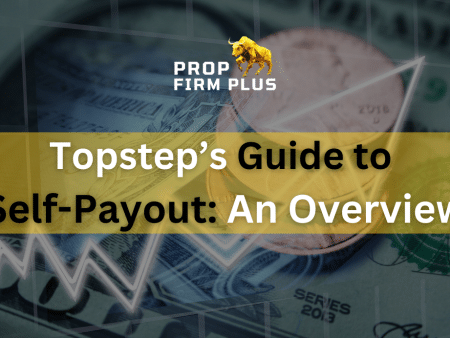Suppose you want to explore the field of proprietary trading. In that case, grasping the fundamentals before diving in and steering clear of typical traps that a lot of newbies encounter is absolutely crucial.
Trading using one’s own capital rather than that of clients is known as proprietary trading. The enormous profit potential attracts a lot of novices, but they frequently lack the requisite abilities and understanding. It’s essential to comprehend the market if you want to succeed in proprietary trading. We go over what you need to know as a novice about prop trading in this post.
Defining Proprietary Trading
A key component of the business strategy of big banks and brokerage houses is trading on behalf of their customers. You may be surprised to hear that these big financial institutions trade on their own behalf and attempt to boost profits frequently using their substantial arsenal.
Proprietary or proprietary trading is the practice of a financial organization trading its own capital instead of that of its clients. The idea is that by beating out other investors and using its deeper understanding of markets, trends, and forecasts, the firm can increase returns for its stakeholders. These establishments recruit seasoned traders to execute trades on their behalf.
How to Start Prop Trading
It takes special talent to become a prop trader. You must dedicate time to advance through the ranks since large financial institutions hire prop traders with the hope that they will increase their revenue and make wise judgments with the company’s cash. If you’re interested in working for a prop trading firm, here’s how to get started:
Instruction
Strong educational background in an area linked to company finance, statistics, or economics is a must for a job in the financial industry. To work as a prop trader, you will need at least a bachelor’s degree from an accredited university.
Several subjects of study are utilized by some of the top candidates to make their resumes stand out. You probably have a strong basis in place to pursue a career as a trader if you have a decent working understanding of finance and statistics.
Acquire Experience
Large businesses usually do not recruit traders without documented investment experience. Take advantage of an internship or mentorship to begin learning on the job throughout your degree program or soon after graduation. First, pay attention to the benefits and drawbacks of the career you want and learn as much as you can from others who are in it. Then, to assist your future application as a prop trader stand out, establish personal contacts with people in the industry who can either mentor you or recruit you on a full-time basis.
Look Up Prop Trading Firms
You stand to get a lot of experience and a strong education if you want to join a reputable prop firm. Ideally, you will be able to choose where you work; the secret to a successful first full-time employment is to choose businesses that align with your trading style and preferences.
Apply and Get to Work
Using the contacts you have built, apply for entry-level trading opportunities at the company you have in mind. You should modify your resume for the position you’re looking for, just as you would for any other job.
How Do You Become an Active Prop Trader?
If you’re thinking about becoming a prop trader, the following points should help you understand what a typical day in life in this industry entails. The fundamental principle of trading remains the same, even as circumstances differ based on companies, regions, and experience levels: you have to deliver results, whether it takes 30 or 60 hours a week.
Prepare Everyday
This method entails keeping up with events in the financial sector and being aware of all daily activities before the opening bell.
Trading During Market Hours
As expected, traders are busiest at the beginning and conclusion of each trading day since they try to take advantage of the market schedule. To gain a sense of what the market is doing at any given moment of the day, some prop traders dedicate a significant portion of their time to buying, selling, and chatting with their contacts.
More analytical traders utilize their mathematical abilities to process data in real-time and modify models and projections to find the best deals to execute at that moment. You should focus on the possibilities highlighted during your morning meeting by implementing your own trading strategy.
Daily Synopsis
Most Trading teams review the day’s activities after the market closes. This time frame may be a treasure trove of knowledge for a novice trader as it teaches you how profitable transactions are made, and vice versa. Because they are expected to stay after the market closes and finish the administrative tasks necessary to make sure all deals are completed and everything is set for the following day, new traders usually put in longer hours.
Progress
Top performers in prop trading can achieve success quickly. Seniority is probably not as important to the firm you work for as productivity is, thus top traders can advance fast.
Advantages of Prop Trading
Prop trading can be a fantastic option for your future career if you’re searching for a challenging and rewarding role and have a strong aptitude for mathematics and problem-solving. Prop trading has several excellent advantages as a job:
High Return Potential: Compared to other financial occupations, the opportunities for remuneration are very good if you can advance through the ranks and become a proficient prop trader.
Teamwork: A trade team usually consists of intelligent, high-achieving individuals who are all working for the same objective of boosting the firm’s revenue.
Fair Grounds: Performance, not seniority, is the primary factor in most prop firms’ promotions. If you’re just starting out in the finance industry but are confident in your trading abilities, prop trading can provide you the chance to advance in your profession quickly.











